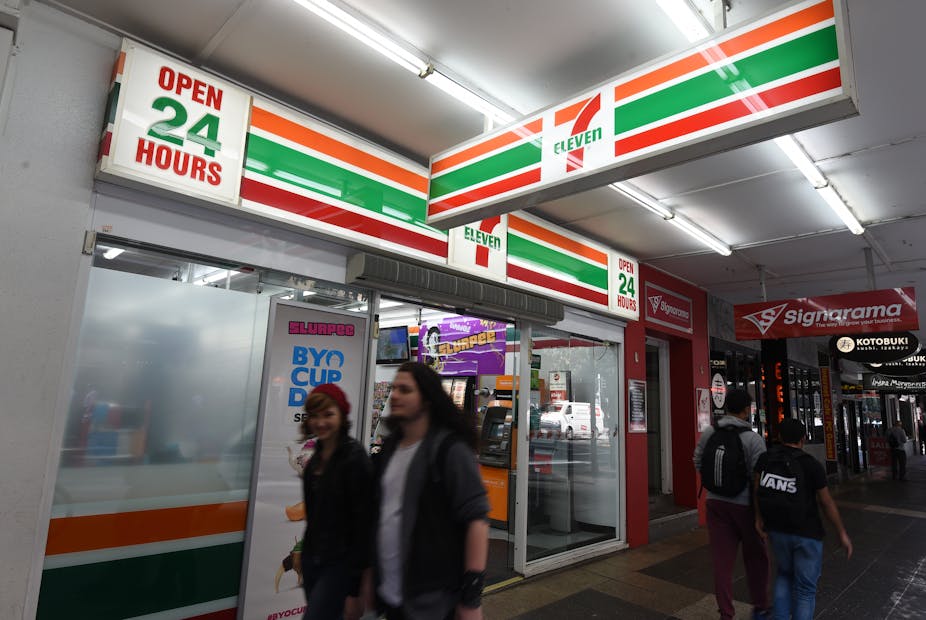Franchising is a pervasive business model in contemporary Australia. Many of the best known brands, including those in fast food, retailing, coffee, car maintenance, and other services are or have become part of franchise operations. According to the Franchising Australia there are almost 1200 franchising formats (brands) operating and an estimated 70000 units operate as franchisees while 9000 units are franchisor owned and operated.
The industry represents around 4% of Australian businesses and directly employs around 460,000 people, according to Franchising Australia 2014.
Superficially the reasons for the growth of this business model are obvious; the promise of lucrative returns, the independence associated with owning and operating a small business, the prestige of association with a strong brand, and advice and support from the franchisor.
However, frequent disputes between franchisees and franchisors and continuing evidence of widespread breaches of workplace laws suggest that the reality may be somewhat different.
According to an influential study of US franchising by former Boston Professor (now head of the Department of Labor’s Wage and Hour Division) David Weil, franchising can be best understood as part of a “fissured workplace”. Other elements of this process include off-shoring and sub-contracting. All have the apparent attraction of lowering costs to the lead firm and reducing exposure to risk.
For example, in theory sub-contracting may enable the lead firm to pass the risk of large capital investments or uncertain new technologies to the sub-contractor. More often than not, contracting operates to reduce costs. In Victorian local government, for example, outsourcing of services typically involved a transition to a workforce with lower unionisation rates and greater cost flexibility.
Problems with the franchising model have been the subject of repeated efforts by Australian regulators to ameliorate the power imbalance inherent in the relationship. Most recently the Australian Competition and Consumer Commission implemented a mandatory Franchising Code of Conduct. The code aims to ensure that people do not purchase a franchise without undertaking the necessary due diligence.
But the numerous obstacles have been pointed out to conducting due diligence and unfortunately only a minority of franchisees ever undertake due diligence. These include the difficulty of finding the right legal and accounting expertise; the fact there is there is no public database of franchise agreements or disclosure statements; and if disputes are mediated there are no decisions to scrutinise.
Franchisees are thus at risk of entering into agreements in which the rights and obligations are skewed in favour of one party. If this impinges on profitability, then franchisees have an incentive to cut labour costs, the most controllable element of costs.
Recent revelations of widespread underpayment of wages, abuse of foreign workers and evasion of taxation liabilities by some 7-Eleven franchisees underscores that the consequences of the relational power imbalance may cascade down to employees.
But whether this results from the fragmentation inherent in the franchising model or reflects of the tendency of small business operators to attempt to “fly under the radar” of regulation is now receiving attention.
Among the causes for the underpayment of workers identified in the 7-Eleven case were the structural tensions between franchisor and franchisees, including the need to provide detailed reporting back to the franchisor, highly prescriptive product purchasing demands and the franchise’s financial dependence on the franchisor.
Ironically, some of these requirements are what Weil identified as “standards and procedures that maintain the integrity of the brand” and are among the incentives to become a franchisee.
While breaches of employment standards associated with franchising are not confined to Australia, there is mounting evidence from the Fair Work Ombudsman and the former Office of Workplace Services that certain types of franchising operations are more prone to abuses, particularly fast food, convenience stores, and bakeries. There is insufficient evidence available as to whether compliance rates are better in other areas.
Efforts to enforce workplace laws in franchised operations are longstanding (see here). In 2009 the Fair Work Ombudsman audited 63 Victorian stores in a joint campaign with the franchisor. More recently the enforcement strategy has placed greater emphasis on supporting compliance. The Fair Work Ombudsman launched its National Franchise Program in 2012 and since then brands like Bread Top, Australia Fast Foods (trading as Chicken Treat), McDonald’s Australia, and La Porchetta Franchising signed proactive compliance deeds with the Ombudsman.
Ultimately we are left with a paradox. Despite the fact that the long term profitability of franchisors depends on maintaining the strength of the brand, some fail to implement effective monitoring and control systems for the enforcement of labour standards which have widespread community support.
This issue will be discussed at a Monash Business School forum, Employment Regulation and the protection of international students, on Tuesday, October 27, 2015.

